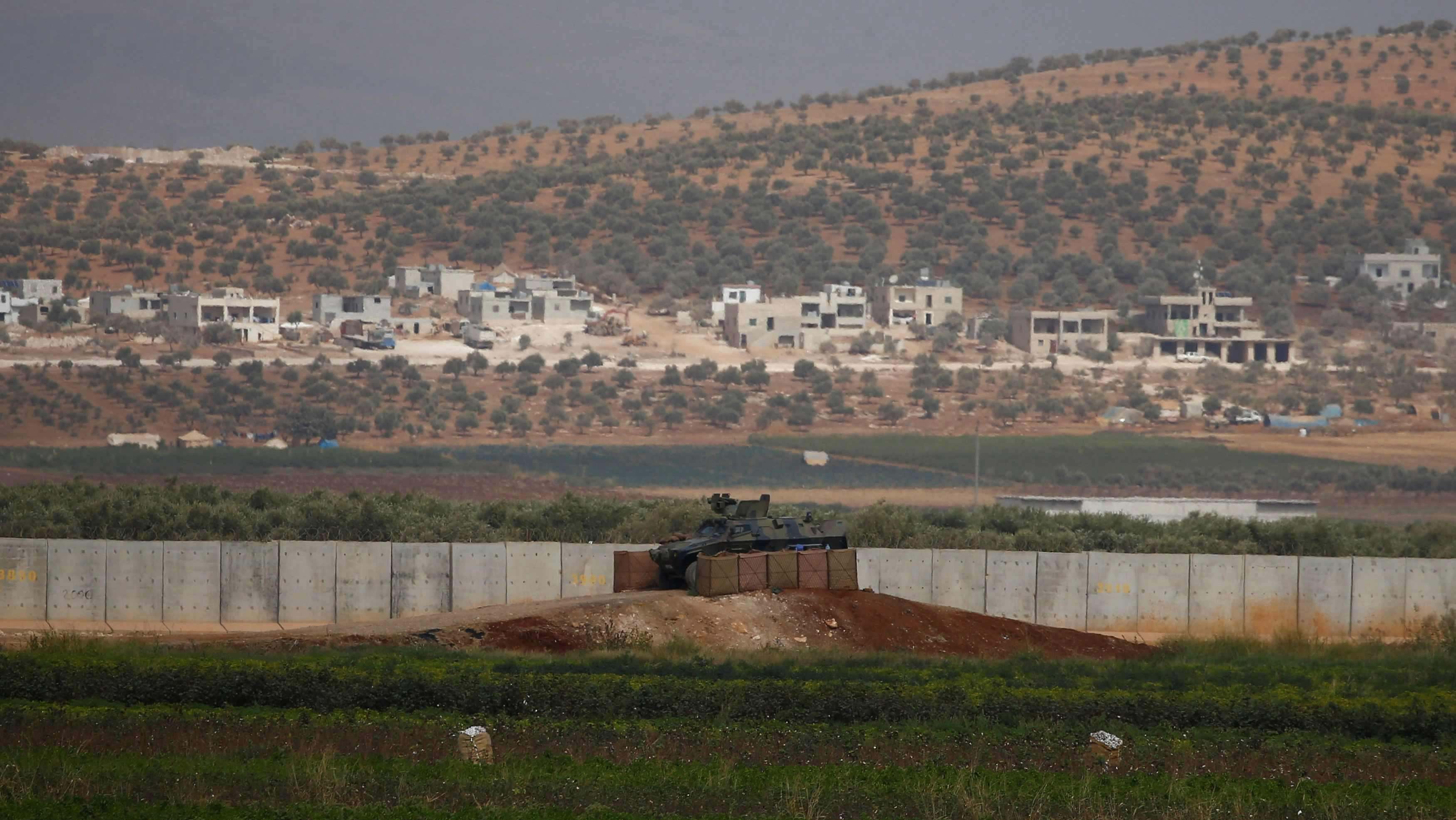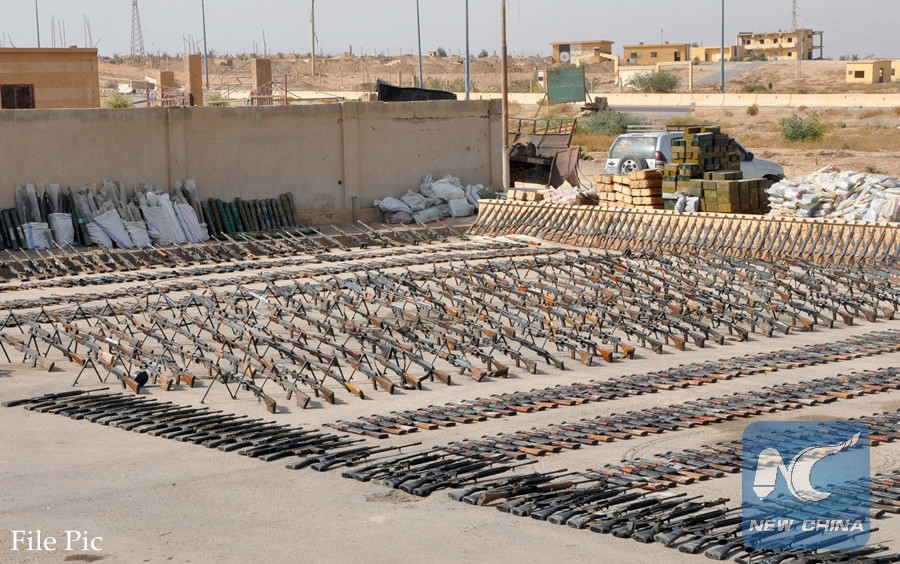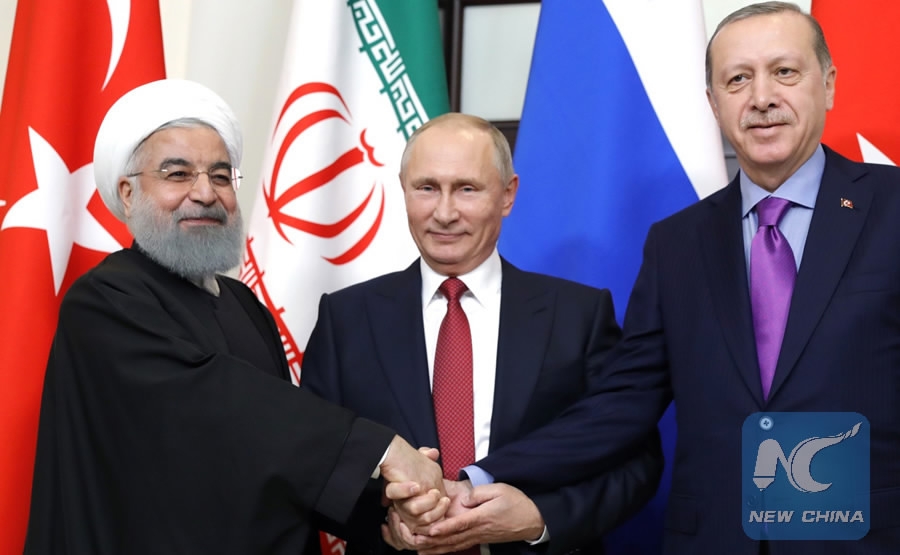
Opinions
19:06, 24-Nov-2017
Opinion: Overestimated optimism - major obstacles in 'post-ISIL' Syria
Guest commentary by Wang Jin

With the announcements of "ISIL's elimination" made by both Iranian President Hassan Rouhani and Iraqi Prime Minister Haider al-Abadi days ago, ISIL no longer has a remarkable control in Syria, and its days in the country are numbered. Meanwhile, the leaders of Russia, Turkey and Iran have met in the Russian resort of Sochi, and the trilateral relation has "reached a new stage" after intensive discussions over the Syrian issue.
It seems that the successful and peaceful settlement of the seven-year-long Syrian civil war has become realistic and promising.
However, the optimism should not be overestimated. There are still serious challenges and obstacles hindering the successful and peaceful settlement of the Syrian issue.
The first challenge comes from the split between different states over the legitimacy of Syrian President Bashar al-Assad.
Countries like Russia and Iran maintain that Assad should continue to be the legal leader of Syria, regardless of whether his political power should be limited and constrained in the future "reconciliation government".
Meanwhile, states like the US and Turkey still harbor the intention to "oust Assad".
Washington's major policy in Syria has focused on fighting ISIL since 2014 and the US Secretary of Defense has become, to a large extent, the decision maker and practitioner of US policy in Syria. However, the US views the Assad regime as the “original sin” responsible for the Syrian turmoil and civil war, which has entered its seventh year, and believes a "free" and "democratic" Syria would result from the resignation of Assad and his family.

Weapons reportedly seized by Syrian government forces during a military operation against ISIL fighters. /Xinhua Photo
Weapons reportedly seized by Syrian government forces during a military operation against ISIL fighters. /Xinhua Photo
Like the US, Turkey does not want to see Assad in Syria’s future. As an active supporter of the Syrian opposition, Turkey has become an important base for Syrian political opposition parties and military groups since 2011.
Before flying to Sochi for his fifth face-to-face meeting with Putin this year on November 13, Turkish President Recep Tayyip Erdogan criticized the consensus reached by Trump and Putin in Da Nang, Vietnam, on November 11, during an Asia Pacific Economic Cooperation (APEC) meeting, for closing the door on a military option before the Syrian regime under Assad was over. Although Erdogan finally lent his support to a political resolution after meeting Putin, he still expressed reservations.
Without any doubt, the disputes over the legitimacy of Assad will significantly influence the Syrian peace process.
The second challenge comes from the distrust and rivalry between Iran and Turkey.
Although Ankara and Tehran have been coordinating their interests in Syria, with the mediation of Russia, Turkey still views the "Shiite expansion" in the Middle East “directed” by Iran as a threat to it.
To many Turkish experts, Iran is the "real winner" of the battle against ISIL. Iran has partly reached a decision making position, beyond being influential in both Iraq and Syria. Iran secures such an influence through Shiite militant groups, such as al-Hashd al-Shaabi (People Mobilization Army) in Iraq and the militia it leads from various parts of the world, especially from Lebanon and Iraq, to the Syrian territory.
Iran’s regional influence, according to Turkey, should be constrained through the political settlement in Syria.

(From left) The Presidents of Russia, Iran and Turkey hold hands in Sochi, Russia, on November 22, 2017. /Xinhua Photo
(From left) The Presidents of Russia, Iran and Turkey hold hands in Sochi, Russia, on November 22, 2017. /Xinhua Photo
The third obstacle comes from the status of Syria's Kurds.
The Kurdish Democratic Union Party (PYD) has controlled large swathes of land in al-Hasakah, Raqqa, and Idlib in northern Syria. As an important force resisting the expansion of ISIL, Syrian Kurds have been praised by both the US and Russia, and are seen by the international community as a reliable partner for countering Islamic extremists in Syria.
However, on the one hand, Ankara views the PYD as a branch of the Kurdish Workers Party (PKK) in Turkey. The PKK has been pushing for Kurdish independence (before 1998) and autonomy (after 1988) mainly through military means, and has been considered by the Turkish government as a "terrorist group". Therefore Turkey is strongly concerned with the presence of the PYD in northern Syria and views its existence as a security threat to its own homeland security.
On the other hand, the Syrian government and political opposition parties have refused to invite the PYD and other Syrian Kurdish political parties to the peace negotiations.
One of the major political appeals of Syria's Kurds since 2011 has been seeking "equality" and "ethnic rights" such as speaking Kurdish, and publishing Kurdish books – which have been countered by both the Syrian government and opposition. Without the attendance of the Syrian Kurds and the inclusion of their interests, any political solution and plan for the country's future may not be stable and effective, given the de facto "autonomous local government" established by the Syrian Kurds in northern Syria.
With the "elimination" of ISIL's presence in Iraq and Syria, a successful settlement that ends the Syrian civil war seems possible. However, a "political solution" in Syria still faces several difficulties that should be overcome with regard to these complicated balances.
We also should not underestimate the difficulties and challenges of coping with the conflicts between different security concerns, and the expectations of various internal and external actors in the following period.
(Wang Jin is a PhD candidate at the School of Political Science of University Haifa and a research fellow at Syria Research Center of Northwest University. The article reflects the author’s opinion, not necessarily the views of CGTN.)

SITEMAP
Copyright © 2018 CGTN. Beijing ICP prepared NO.16065310-3
Copyright © 2018 CGTN. Beijing ICP prepared NO.16065310-3